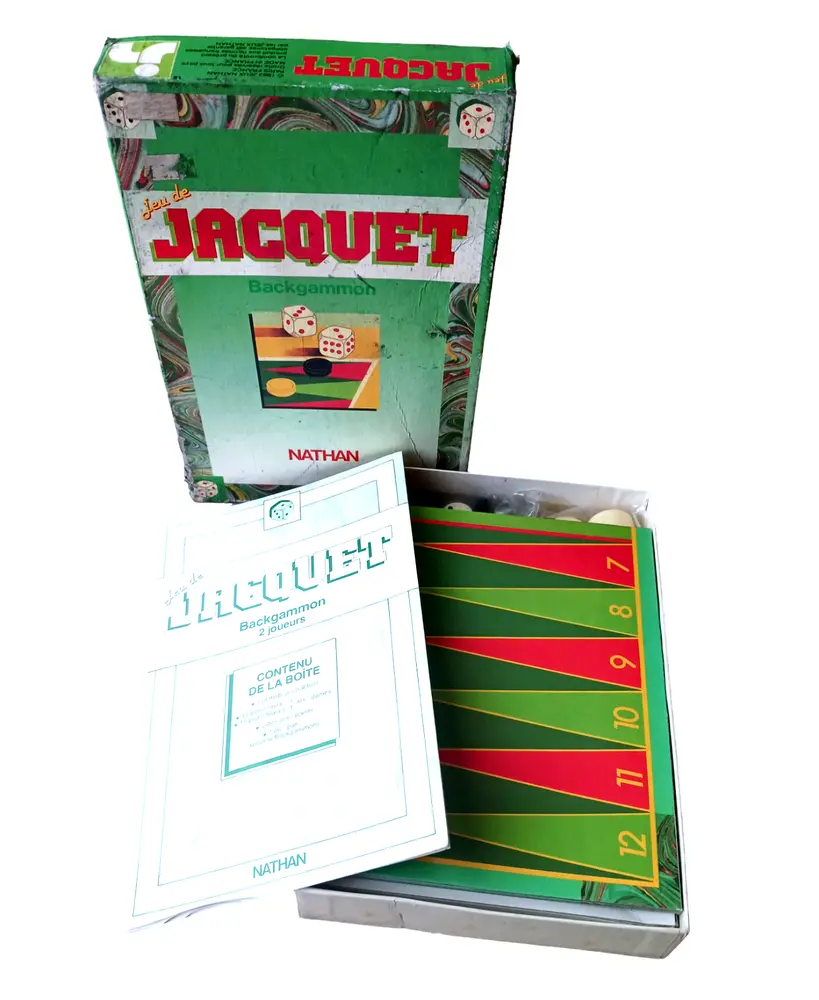Jacquet board gameme site:https://boardgamegeek.com/boardgame/
Jacquet: A Brief Overview
Jacquet is a tables game played on a backgammon-like board that was once very popular in France and several other parts of Europe. It emerged around 1800 and gradually replaced the classic French backgammon equivalent, Trictrac, until Jacquet itself was superseded by Anglo-American games in the 1960s.
Key Features of Jacquet:
Board: Jacquet is played on a backgammon-like board, without a storage strip.
Pieces: Each player has fifteen pieces, known as men.
Dice: The game uses two dice for movement.
Gameplay Mechanics
Movement is anticlockwise around the board.The game is popular and significant because it was the benchmark for tables games in France for a long time, gradually superseding Trictrac and remaining popular until the 1960s. Although Jacquet boards are still marketed and rule sets have been published in French board game compendia, the game has largely been replaced by other games.To set up the game, each player starts with fifteen men on the rightmost point of the far side of the board, at diagonally opposite corners from each other. They move in the same direction, counterclockwise, around the board. The object of the game is to move all of your checkers around the board to your own finishing table and bear them off. The first player to bear off all their pieces wins the game.
Game Components of Jacquet
How To Setup Jacquet
To set up Jacquet, each player places their 15 men on the nearest section of the board, known as the *talon* (“heel”). This section includes the first 24 points of the player’s side of the board. The men are placed with all 15 men on the 24th point initially.
Gameplay Mechanics and Game Objective
Player Experience
Jacquet offers a mix of strategy and luck, as players must carefully plan their moves based on the dice rolls while also trying to block their opponent’s progress. The game requires patience and tactical thinking, especially in managing the *postilion* and creating effective blocks.
Pros
Cons
Personal Thoughts on Jacquet
Jacquet is an intriguing game for those interested in historical board games and complex strategies. It is ideal for players who enjoy games that require careful planning and tactical execution. While it may not be as widely known as Backgammon, Jacquet offers a unique and engaging experience that can appeal to fans of tables games and strategy enthusiasts. However, it may not be the best fit for casual players looking for a quick and simple game.
We are supported by our audience. When you purchase through links on our site, we may earn an affiliate commission, at no extra cost for you. Learn more.

